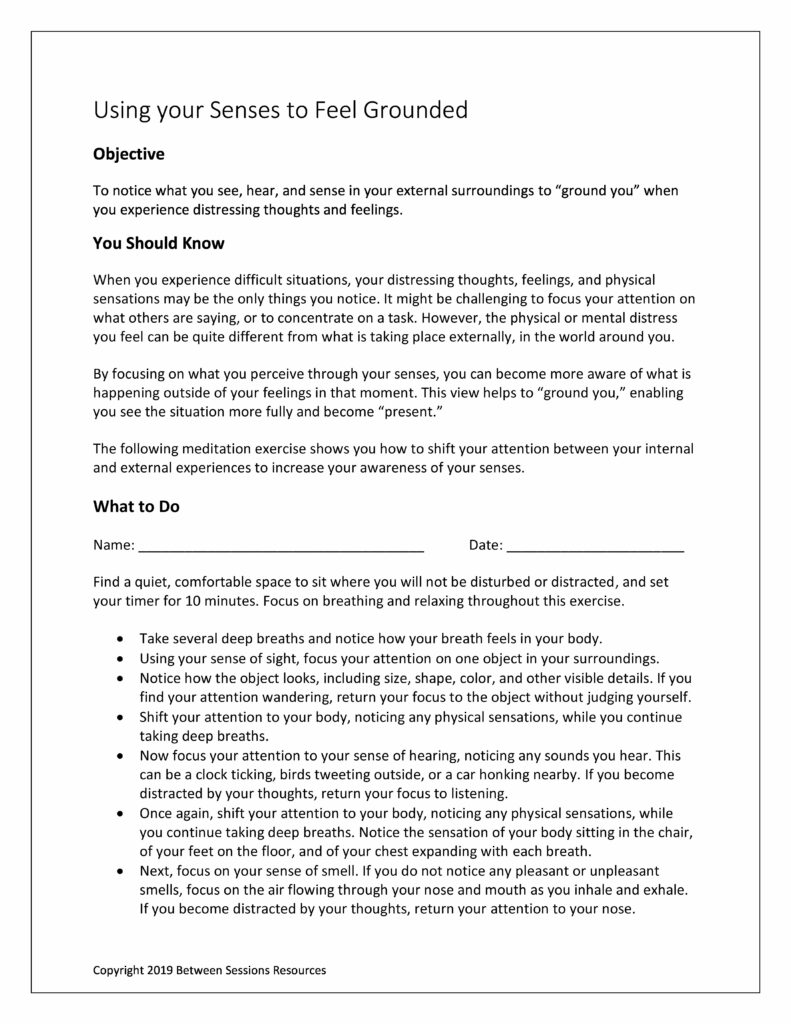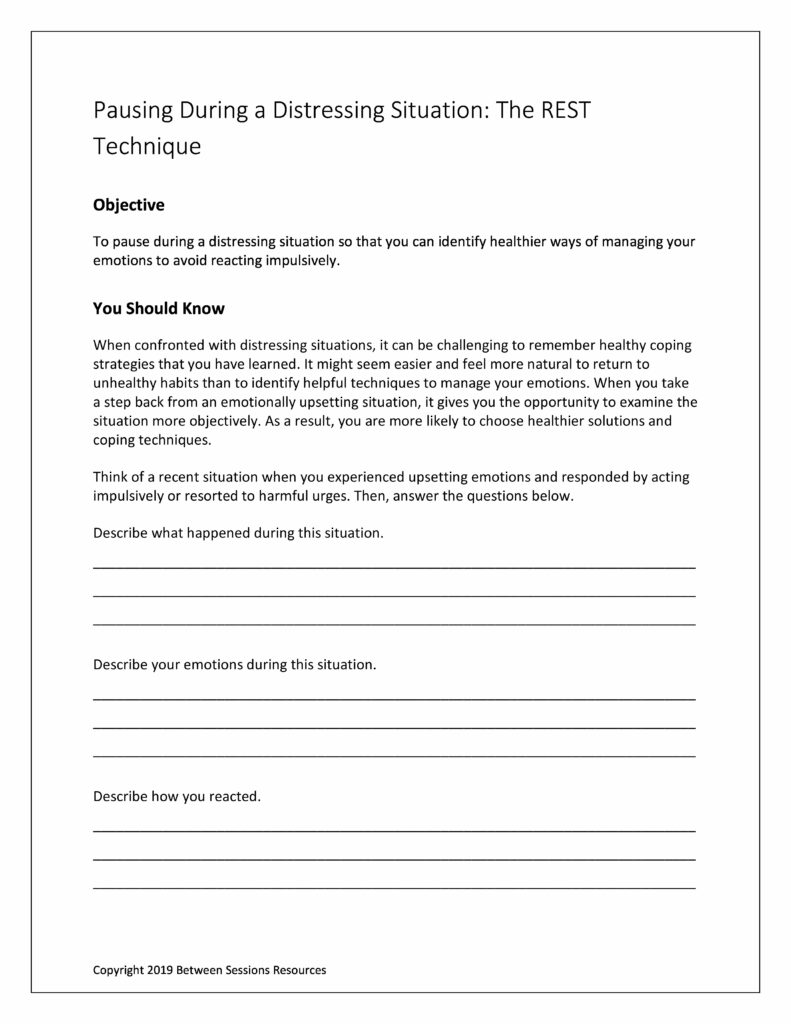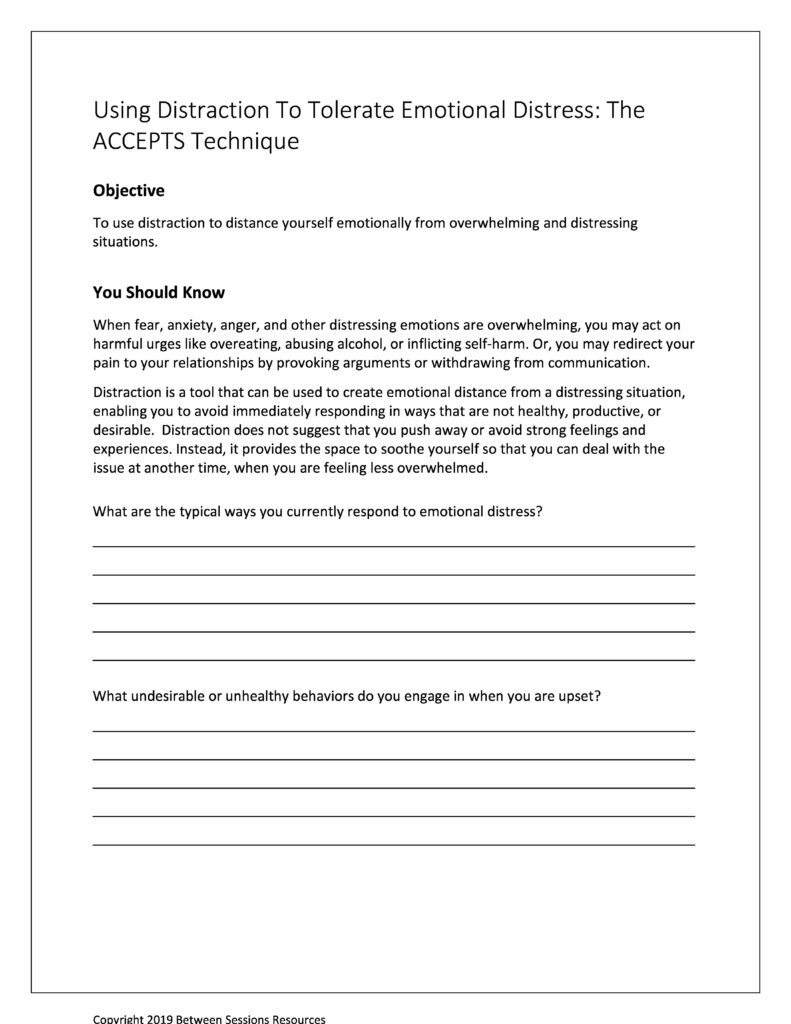Studies tell us that when professionals prescribe therapeutic homework, clients report significantly better outcomes. Our worksheets are derived from evidence-based therapies, and they are designed by experienced professionals. Use the navigation links on the left of this page to view tools in a specific category. Or use the search box at the top of this page to find the exact tool you are looking for.
To modify the tools, click the ‘Send to Client’ button by each tool to open the Psychology Forms Filler. You can then edit the tool as you see fit and either print it out or send it to a client to be filled out online. Click here for a tutorial on using the Psychology Forms Filler.
If you can’t find what you are looking for on this site, please let us know by
clicking here and our team of writers, graphic artists, and therapists will custom-design it for you.
This worksheet is designed to help people with eating disorders pay attention to body cues rather than situational cues when deciding when and what to eat (binge eating, eating disorders, overeating, 1219)
This worksheet is designed to help people who have a fear of going to the dentist find a partner to help them get to appointments and give them needed support. (1219, dental phobia)
This worksheet is designed to help people find strategies to have a better night’s sleep in order to improve their physical and mental health. (sleep, insomnia, 1219)
This worksheet is intended to help people use visualization to detach themselves from upsetting thoughts and feelings. (DBT, emotional regulation, 1219)
This worksheet is intended to introduce the concept of interpreting body language in interpersonal communication. The worksheet asks people to consider the meaning of body language in their own communication as well as in the communication of others. (communication, marriage, divorce, relationships, 1219)
This worksheet is designed to help people deal with overwhelming emotions, depersonalization, and derealization. It directs people to pay attention to sensory input as a way of becoming grounded and feeling in control. (Bipolar Disorder, grounding, emotional regulation, DBT, 1119)
This worksheet is designed to help people dealing with difficult emotions focus on a task in the here and now. (DBT, emotional regulation, bipolar, depression, 1119)
This worksheet helps people deal with overwhelming emotions by using the REST technique (relax, evaluate, set an intention, take action). It is designed to help people regain control over their emotions. (DBT, emotional regulation, 1119)
This worksheet is designed to help people who self-injure tell others about their problematic behaviors so they can receive the support they need. The worksheet gives people phrases to complete and use as a guide for this important conversation. (self-injury, self-harm, SI, Borderline Personality, 1119)
This worksheet can be used by people to help cope with overwhelming emotions. It describes the ACCEPTS method, a DBT technique, to help people experiment with various ways to distract themselves from upsetting and overwhelming emotions. (DBT, distress tolerance, emotions, 1119)










